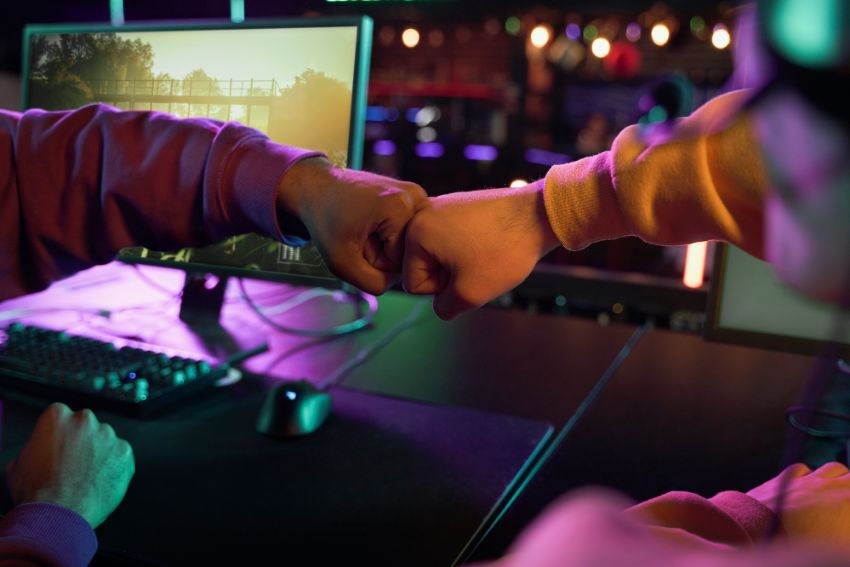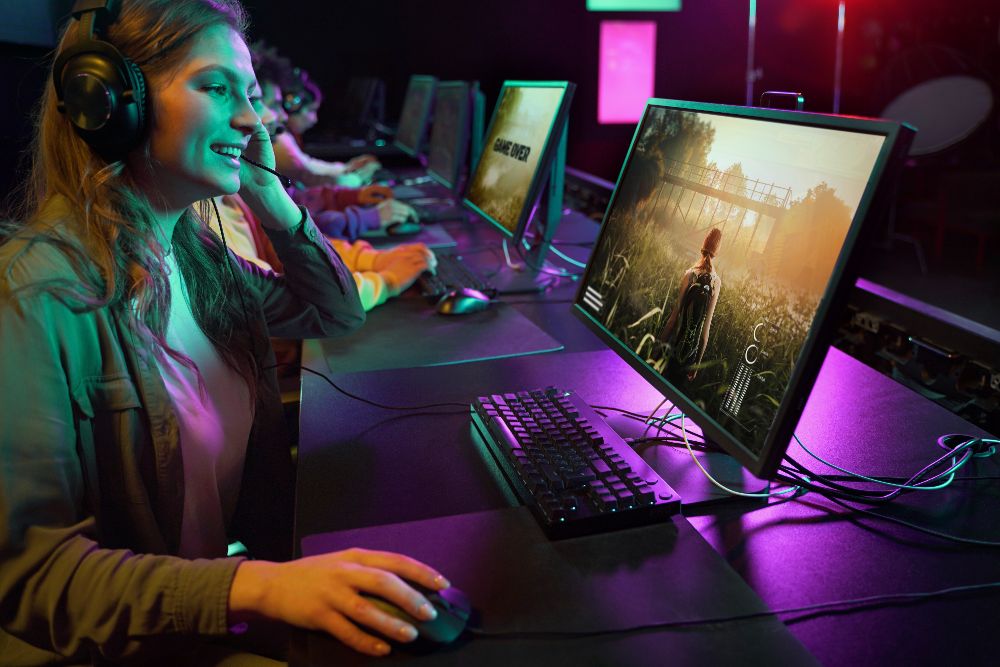The esports industry has experienced significant growth, making it crucial for developers, players, and organizers to understand the legal aspects that govern it. Key areas of concern include intellectual property rights, player contracts, sponsorship agreements, and broadcasting regulations. Each of these areas requires careful consideration to ensure compliance and protect the interests of all parties involved.
Intellectual property rights are particularly important in esports, as they cover the ownership and licensing of game content. Developers must ensure that their intellectual property is adequately protected to prevent unauthorized use.
Player contracts also play a vital role, outlining the terms and conditions of employment, including salary, benefits, and obligations. These contracts need to be clear and fair to avoid disputes.
Sponsorship agreements are another critical component, as they provide financial support to teams and events. Such agreements must be precisely drafted to define the rights and responsibilities of both sponsors and recipients.
Broadcasting regulations add another layer of complexity, particularly with international events. Compliance with various national laws is necessary to avoid legal issues and ensure smooth operations.
In summary, understanding and navigating the legal aspects of esports is essential for maintaining a fair and competitive environment. By focusing on key areas like intellectual property, player contracts, sponsorship agreements, and broadcasting regulations, stakeholders can better protect their interests and contribute to the industry’s sustainable growth.
Key Takeaways
- Intellectual property rights are crucial for developers to prevent unauthorized use and protect revenue streams.
- Player contracts define obligations, including salary, practice schedules, and clauses on streaming and social media conduct.
- Sponsorship and endorsement deals must be carefully managed for financial gain and to avoid conflicting brand commitments.
- Broadcasting agreements determine audience reach and revenue, with exclusive and non-exclusive options affecting viewership and profitability.
- International regulations impact IP protection, labor laws, gambling restrictions, and compliance requirements for broadcasting in different regions.
Intellectual Property Rights
Navigating intellectual property (IP) rights in esports is crucial for developers, players, and tournament organizers. For developers, IP protection ensures control over the use and monetization of their game. Without adequate IP safeguards, game assets, characters, and storylines could be misappropriated or replicated without authorization, leading to potential financial losses and brand erosion.
Players also need to understand IP rights, especially when streaming or uploading gameplay videos, as they’re utilizing the developer’s IP. Awareness of the game’s terms of service can protect players from copyright claims. While some developers may encourage content sharing to enhance the game’s visibility, others may enforce specific restrictions.
Tournament organizers must also handle IP rights carefully. The use of game assets in promotional materials or during live events requires proper authorization from the developers. Unauthorized usage can result in legal consequences, potentially disrupting events and damaging reputations.
Player Contracts
Player contracts in esports are integral to the professional framework, delineating the rights and responsibilities of both players and organizations. When a contract is signed, it commits the signatories to specific terms that cover aspects such as salary, practice schedules, and performance standards.
These contracts may also include clauses related to streaming obligations and social media conduct.
It is crucial to pay attention to the duration of the contract and any termination clauses. Some contracts permit organizations to release players with minimal notice, which can be challenging for the player. Therefore, it’s advisable to look for clauses that offer protection or compensation in the event of an early termination by the organization.
Another significant element is the non-compete clause, which can restrict a player’s ability to join competing teams or organizations for a specified period after leaving their current team.
Understanding the implications of this clause is vital, as it can affect career mobility.
Sponsorship and Endorsements
Player contracts are fundamental to an esports career, but sponsorship and endorsements significantly contribute to a player’s financial stability and public image. Understanding the mechanics of these agreements is crucial for maximizing earnings and safeguarding interests.
Sponsors offer financial support and resources in return for brand visibility, typically requiring players to wear branded merchandise or promote products on social media.
Endorsements involve promoting a brand or product through advertisements or personal appearances. While potentially lucrative, these deals come with specific obligations, including terms that may require exclusivity, thus preventing endorsements of competing brands.
It is essential to be aware of the legal implications of these agreements. Reviewing the contract thoroughly is critical to ensure that it aligns with career goals and personal values.
Key elements to consider include the duration, payment terms, and any restrictive covenants. Consulting a legal expert can aid in navigating these complexities and ensuring compliance with all terms.
Effective management of sponsorship and endorsement deals can substantially enhance income and market presence in the esports industry.
For more information, read this article: The Role of Sponsorships in Esports
Broadcasting Agreements
Broadcasting agreements are crucial in the esports ecosystem, influencing how competitions reach audiences and generate revenue. Understanding these agreements is essential for anyone involved in esports, as they determine the streaming rights, content distribution, and financial arrangements between organizers and broadcasters.
One key aspect to consider is exclusivity. Some agreements grant exclusive rights to a single broadcaster, creating a monopoly over the content. While this can increase the contract’s value, it might also limit audience reach. Conversely, non-exclusive deals allow multiple platforms to broadcast the same event, potentially increasing viewership but diluting the revenue per platform.
Revenue-sharing models also vary significantly. Some agreements may offer a flat fee upfront, while others include revenue splits based on ad sales, subscriptions, or viewer numbers. Understanding these specifics is crucial for negotiating favorable terms.
Intellectual property rights are another important consideration. Broadcasters often seek rights to use game footage and player likenesses. It’s essential to ensure these rights are clearly defined to avoid future disputes.
International Regulations
Navigating international regulations is a complex but essential aspect of the esports industry. As an esports professional, understanding the global legal landscape is crucial to ensure compliance and avoid costly pitfalls. Different countries have varying laws on gambling, labor, intellectual property, and broadcasting, all of which can impact your operations.
Firstly, intellectual property laws differ significantly across countries. Some nations have robust protections, while others may not enforce copyright or trademark laws as rigorously. This variation affects everything from game development to merchandising. Securing the appropriate rights is necessary to avoid infringement issues.
Secondly, labor laws are critical, especially when managing international players and teams. Work visas, employment contracts, and player transfers can all be subject to strict regulations. It’s important to familiarize yourself with the labor laws of the countries where your players are based.
Thirdly, gambling laws may also be relevant, particularly if your esports event involves betting. Some countries have stringent anti-gambling laws that could impact the legality of your tournament.
Lastly, broadcasting agreements must comply with local regulations, including advertising restrictions and content standards. Ensuring that your contracts reflect these requirements can help you avoid legal complications.
Staying informed and consulting with legal experts can assist you in effectively navigating these international regulations.
If you are interested in The Future of Esports, read this article:https://bet-of-the-day.net/2024/10/02/the-future-of-esports/
Conclusion
Maneuvering the legal aspects of esports can be complex, but understanding intellectual property rights, player contracts, sponsorships, and broadcasting agreements is essential. International regulations add another layer of complexity, but with careful consideration, you can protect your interests and promote a fair and sustainable environment. Stay informed and proactive, and you’ll guarantee your place in the rapidly evolving esports industry remains secure and successful.



